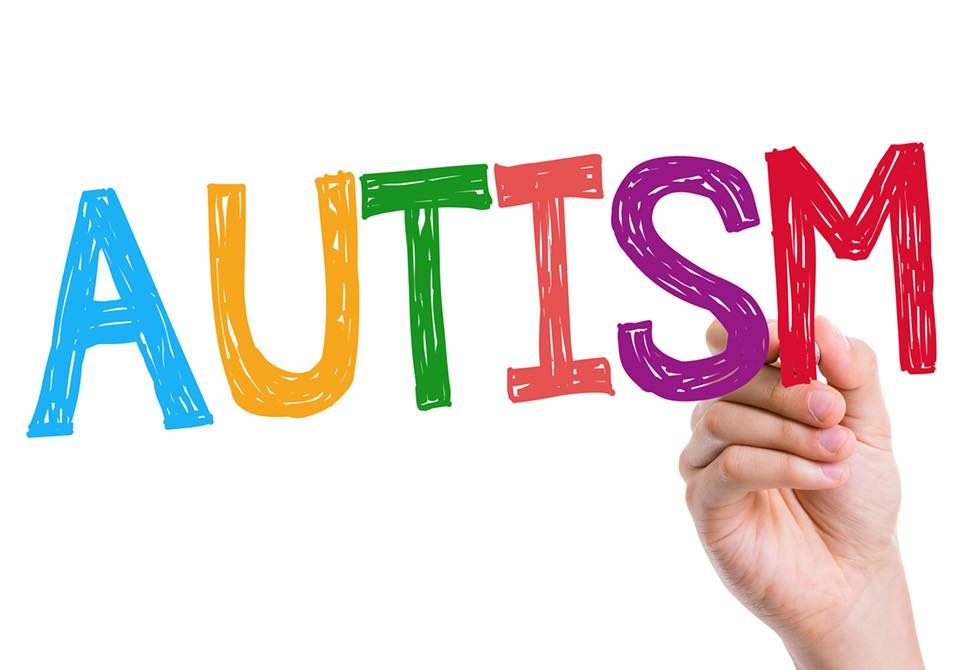-
Posts
7,626 -
Joined
-
Last visited
-
Days Won
44
GoldenEagle last won the day on August 31 2016
GoldenEagle had the most liked content!
Reputation
1,559 ExcellentAbout GoldenEagle
- Birthday June 16
Profile Information
-
Gender
Male
-
Location
Texas
-
Interests
Jesus, The Bible, Personal Finance, Stewardship, Family, Board Games, Card Games, Friends, Movies.
Recent Profile Visitors
5,740 profile views
-
I've been burnt out a lot with organized religion lately. I guess I'm just wondering I know this craziness with the Novel Coronavirus (COVID-19) has actually made me rethink some things. What about you? God bless, GE
-
We are in Texas. Two weeks ago I couldn't find meat, bread, toilet paper, pasta, rice, milk, tuna, and other basics. I was the only one wearing gloves. Two weeks ago I started working from home. Yesterday most everything was in stock in smaller quantities. About 1/4 of the customers had masks and/or gloves. Non of the cashiers had masks or gloves. One of the customer service representatives had some gloves. Also the guy grabbing the carts had gloves. This week we heard someone got sick in the offices. There were 5 people sent home who had a fever and weren't feeling well. I'm convinced that those who are doing "essential" work will eventually get this virus. The numbers of infected and dead grow each day. Hope everyone who can is staying home and practicing social distancing. Praying this goes best case scenario but expecting it to get significantly worse before it gets better. God bless, GE
-
What are some of the signs of autism? Do you know anyone who is autistic? Can you relate to any of this? These are {15} of my observations in my life (as someone with autism), my family (3 out of 5 of us are autistic), and friends (many who are likely on the autistic spectrum that either deny, ignore, or accept their autism). God bless, GE 1. Empathy • May have trouble understanding other people’s feelings or talking about their own feelings. • Or may experience empathy but may have difficulty expressing that feeling outwardly. • OR may be an Empath taking on the burdens and trials of others. 2. Non-verbal Communication • May have a hard time understanding body language, social cues, or jokes. • May lose language or other social milestones, usually between the ages of 15 and 30 months. 3. Eye Contact • May avoid or have a hard time with eye contact. 4. Socialization • May often want to be alone; or want to interact with others but may not be sure how to do so. • May have a hard time making {close} friends. In some cases, may have plenty or very few acquaintances. • May have a hard time (nervousness or anxiety) in social settings. • May have rather strong opinions and have a hard time accepting other’s opinions. • May have a hard time taking turns in conversations. • May tend to take things very literally. • May be unaware of social cues. 5. Interests • May have narrow, sometimes obsessive or compulsive interests. • In autistic circles, these can be called special interests or hobbies. 6. Self-Focus • May talk about themselves or their interests. • This may sometimes be for long periods of time and expect others to be interested in the topics as well. • May have difficulty in talking about a range of topics. • May use elaborate or complex vocabulary to express themselves. 7. Speech • May speak in unusual ways, in monotone, or with an odd tone of voice. • May have delayed speech and use sounds/signs instead of words to communicate. • May revert to one word or repetitive sentences to communicate. 8. Body Control • May be clumsy or awkward. • May have odd or repetitive movements. • May have a hard time controlling urination or bowel movements. • May impulsively touch others’ bodies, hair, items, clothing. 9. Routine • May have a need for very fixed routines, order, and rituals. • May get frustrated by change or new experiences. • May have unusual eating or sleeping habits. 10. Sensory Challenges • May have extreme reactions or no reactions at all to one or more senses including lighting, sound, touch, taste, and smell. • Too many inputs may lead to frustration, anger, withdrawal, or meltdowns. • May have common reactions to sensory overload such as Flight, Fight, or Freeze. 11. Strengths and Weaknesses • Many people with autism are exceedingly strong in certain areas (math, science, computers, art, writing, etc) and weak in others (communication, social graces, etc). • The strengths and weaknesses of people with autism may vary. • Each autistic person has their own unique set of strengths and weaknesses. • May have extreme anxiety, phobias, and highly unusual phobias. 12. Brain Information Overload • Similar to sensory challenges only has to do with too much information for the autistic brain to handle. • With too much to juggle at once the brain short circuits and the person has a hard time concentrating, speaking clearly, or thinking clearly. 13. Stemming • May exhibit “classic” behavior used to calm ones self including: rocking, spinning, swaying, twirling fingers, walking on toes for a long time, tapping feet, tapping legs, or flapping hands. 14. Diet • May have a very restricted diet. • May have strong reactions to sugar, Red 40, gluten, and dairy. 15. Sensory Avoiders and Seekers • Some people may be sensory avoiders, but others are sensory seekers, looking for input from soft objects, heavy blankets, stuffed animals, playing with ribbons, etc.
-
Yes, I've expanded this list since I first wrote it a few weeks back. I'll post more later. It's not that autistic people can't agree with meeting in the middle. They (or we?) often have trouble seeing others perspectives. God bless, GE
-
I suppose the easiest way to address this is repeat myself? Let's discuss for a moment A. Natural Law and B. distinguish between Vertical and Horizontal rights. Do you agree or disagree with this? Natural Law can be boiled down to two parts: 1. Do not encroach on others or their property. This is the basis of criminal law. 2. Do all you have agreed to do. This is the basis of civil law. It's important to distinguish between vertical (God to person) and horizontal (person to person) rights. In our relationship with God, we have rights only as they are granted to us in Jesus Christ. For example, we can approach God boldly through Jesus Christ as our Mediator. Or we can claim through Jesus Christ the inheritance promised to those who confess that Jesus is Lord and believe in their hearts God raised Him from the dead - eternal life with God. Over our lives and our property we have no rights before God. He has all the rights. He is the Maker and owner of everything. We simply manage what He's given us: Money, Time, other resources, etc. Before our fellow man, though, it's a different story. Every person has basic human rights. Again, see the last few of the 10 commandments. This includes me and you. This is clear from Scripture, from common sense, from natural law, and from the foundations of basic republic/democratic nations. A basic principle of what we see in the Bible is every person should be treated with dignity and respect. Jesus Himself said that the law was summed up in loving God and loving people. Matthew 7:12 So whatever you wish that others would do to you, do also to them, for this is the Law and the Prophets. Matthew 22:36-39 36 “Teacher, which is the great commandment in the Law?” 37 And he said to him, “You shall love the Lord your God with all your heart and with all your soul and with all your mind. 38 This is the great and first commandment. 39 And a second is like it: You shall love your neighbor as yourself. 40 On these two commandments depend all the Law and the Prophets.” You basically said the enemy works through all governments of this world to kill, steal, and destroy. Who sets up kings, world leaders, and establishes government? Seems to me that God sets up governments and leaders? Romans 13:1 Let every person be subject to the governing authorities. For there is no authority except from God, and those that exist have been instituted by God. 2 Therefore whoever resists the authorities resists what God has appointed, and those who resist will incur judgment. God bless, GE
-
1 Cor. 9 for example may seem to indicate that Paul gave up his rights but he never did. Paul was willing to give up his very life. If Paul had no rights then no wrong would have been done to him through stoning, imprisonment, threats of murder, etc. Even Paul claimed his right as a Roman citizen in Acts 22 when he told the Roman officer that he (Paul) was protected from being flogged without a trial. If we passively accept mistreatment we enable offenders to continue in harmful behavior. As image barriers of God we (all people) have worth, dignity, and are worth defending. This is true from the woman who is being beaten by her husband, those who are slaves, the widow who is left out in the cold, and the orphan who needs a home. I'm not sure I follow what you're saying. How can a person change the lack of respect you have for them? How is respect not unlimited? Does the command to respect others seem to be optional to you? I respect the office of President of the United States. I may not like some of the decisions this or the previous administrations' have made but they do not earn my respect. The government is established by God and so the leaders have my respect. Do these seem like options or command by Peter & Paul? 1 Peter 2:17 Show proper respect to everyone, love the family of believers, fear God, honor the emperor. Romans 13:7 Pay to all what is owed to them: taxes to whom taxes are owed, revenue to whom revenue is owed, respect to whom respect is owed, honor to whom honor is owed. Food for thought. God bless, GE
-
Sorry that it's difficult for you to appreciate the rights of others. Just because I don't like saying please and thank you does it make it right for me to be rude to others? I think not. Where do you get the idea that we have no rights? Let's discuss for a moment A. Natural Law and B. distinguish between vertical and horizontal rights. Natural Law can be boiled down to two parts: 1. Do not encroach on others or their property. This is the basis of criminal law. 2. Do all you have agreed to do. This is the basis of civil law. Further, it's important to distinguish between vertical (God to person) and horizontal (person to person) rights. In our relationship with God, we have rights only as they are granted to us in Jesus Christ. For example, we can approach God boldly through Jesus Christ as our Mediator. Or we can claim through Jesus Christ the inheritance promised to those who confess that Jesus is Lord and believe in their hearts God raised Him from the dead - eternal life with God. Over our lives and our property we have no rights before God. He has all the rights. He is the Maker and owner of everything. We simply manage what He's given us: Money, Time, other resources, etc. Before our fellow man, though, it's a different story. Every person has basic human rights. Again, see the last few of the 10 commandments. This includes me and you. This is clear from Scripture, from common sense, from natural law, and from the foundations of basic republic/democratic nations. A basic principle of what we see in the Bible is every person should be treated with dignity and respect. Jesus Himself said that the law was summed up in loving God and loving people. Matthew 7:12 So whatever you wish that others would do to you, do also to them, for this is the Law and the Prophets. Matthew 22:36-39 36 “Teacher, which is the great commandment in the Law?” 37 And he said to him, “You shall love the Lord your God with all your heart and with all your soul and with all your mind. 38 This is the great and first commandment. 39 And a second is like it: You shall love your neighbor as yourself. 40 On these two commandments depend all the Law and the Prophets.” As we follow Jesus, our rights may be violated However, they are still our rights as we are image bearers made in God's image. What do you think? God bless, GE
-
I still think we are still talking over each other. John 18:19-24 The High Priest Questions Jesus 19 The high priest then questioned Jesus about his disciples and his teaching. 20 Jesus answered him, “I have spoken openly to the world. I have always taught in synagogues and in the temple, where all Jews come together. I have said nothing in secret. 21 Why do you ask me? Ask those who have heard me what I said to them; they know what I said.” 22 When he had said these things, one of the officers standing by struck Jesus with his hand, saying, “Is that how you answer the high priest?” 23 Jesus answered him, “If what I said is wrong, bear witness about the wrong; but if what I said is right, why do you strike me?” 24 Annas then sent him bound to Caiaphas the high priest. When Jesus was slapped on the face in John 18 what did He do? Jesus stood up to those who had done Him wrong. Is that a contradiction to Jesus's teaching on the sermon on the mount in Matthew 5? No, Jesus was showing that back handedly slapping someone was wrong and shameful. To turn the other cheek would have been heaping more shame upon the person doing the slapping and would have pointed out the rights of the person who was being violated that should have treated with respect. Jesus never gave up his rights as the Son of God. He retained the right to call down legions of angels to aid Him at any time even up to the end. Jesus didn't make use of His rights to do so because He had a greater purpose. But make no mistake that Jesus rights were violated and the people who called for His death were guilty of the blood on their hands. God bless, GE
-
What page is this? What's the link? Where's your evidence? Sounds like conjecture to me.
-
Epilepsy can be defined as a neurological disorder marked by sudden recurrent episodes of sensory disturbance, loss of consciousness, or convulsions, associated with abnormal electrical activity in the brain. Epilepsy (seizure disorder): When nerve cells in the brain fire electrical impulses at a rate of up to four times higher than normal, this causes a sort of electrical storm in the brain, known as a seizure. A pattern of repeated seizures is referred to as epilepsy. Known causes include head injuries, brain tumors, lead poisoning, maldevelopment of the brain, genetic and infectious illnesses. But in fully half of cases, no cause can be found. Medication controls seizures for the majority of patients. Source: https://www.medicinenet.com/script/main/art.asp?articlekey=3285 To equate autism with demonic possession is just wrong and yes it is insulting. Are we living in the middle ages? You are not stating facts you are making conjectures with little to no evidence to back it up. What links can you share that point to such a claim? What evidence do you have that epilepsy is demonic and autism is also? No, this is not helpful. It is the exact opposite of that. You are spreading misinformation and in fact doing a disservice to anyone who has Autism or Epilepsy. Many people who have these conditions are God-fearing people and love Jesus. Sorry my friend but you are simply wrong. God bless, GE
-
Interesting @Gary Lee that you would say you have no right to be healthy. So do you have a right to choose to exercise and eat what you prefer/like to eat? But again let's talk about respect and dignity for a minute. Which one is the best answer? A. Right - A person should be treated with respect and dignity. B. Desire - A person may have the desire to be treated with respect and dignity. C. Preference - A person would like to be treated with respect and dignity. God bless, GE
-
@Gary Lee Hiya You mentioned that dying to self is one of the most difficult and final steps in growing as Christians. I think the whole "yielding your rights" comes into play here right? See my post about the 10 Commandments to Simple Jeff about implied human rights. I suppose my question the more I think about it is more along the lines of rights of people {and Christians}. For example how do you view these passages: Proverbs 31:8-9 Open your mouth for the mute, for the rights of all who are destitute. Open your mouth, judge righteously, defend the rights of the poor and needy. Isaiah 1:17 Learn to do good; seek justice, correct oppression; bring justice to the fatherless, plead the widow's cause. Psalm 82:3 Give justice to the weak and the fatherless; maintain the right of the afflicted and the destitute. Micah 6:8 He has told you, O man, what is good; and what does the Lord require of you but to do justice, and to love kindness, and to walk humbly with your God? God bless, GE
-
Hi @frienduff thaylorde See post above to SimpleJeff. I think I agree with what you have said. Again, I'm not sure how clear my OP was. Let me try to give an example and rephrase. Let's talk about respect and dignity for a minute. Which one is the best answer? A. Right - A person should be treated with respect and dignity. B. Desire - A person may have the desire to be treated with respect and dignity. C. Preference - A person would like to be treated with respect and dignity. God bless, GE













